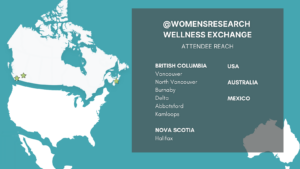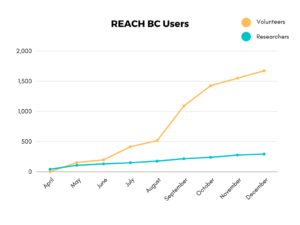
Methionine Requirements during Healthy Human Pregnancy
Appropriate nutrition during pregnancy is important for the normal, healthy growth of your baby and for later child health. Overnutrition or undernutrition during pregnancy can have

Appropriate nutrition during pregnancy is important for the normal, healthy growth of your baby and for later child health. Overnutrition or undernutrition during pregnancy can have

On December 10th the WHRI hosted its first virtual public event, the @WomensResearch Wellness Exchange. We want to extend our sincere thanks to you, our

REACH BC is a new online platform that connects the public and patients with research opportunities related to their health conditions and/or interests, to ultimately

The BCPDR contains maternal, fetal, and neonatal health information for an estimated 99% of all deliveries and births that occur in British Columbia. From the

WHRI member Dr. Deborah Money is the lead on the Canadian Surveillance of COVID-19 in Pregnancy: Epidemiology, Maternal and Infant Outcomes project, or CANCOVID-Preg. The

By Neora Pick, MD, Medical Lead, Oak Tree Clinic, BCWH, Clinical Professor, Division of Infectious Diseases, Department of Medicine, UBC December 1st was World AIDS Day! We
The Women’s Health Research Institute would like to acknowledge that we are uninvited guests on the unceded ancestral territories of the xʷməθkwəy̓əm (Musqueam), Skwxwú7mesh (Squamish), Stó:lo, and sel̓íl̓witulh (Tsleil-waututh) Nations.
As a provincial research institute committed to improving the health outcomes of women, including those across the 2SLGBTQIA+ spectrum, we recognize our responsibility in the collective effort towards establishing culturally safe health care systems and services that address health inequities among Indigenous peoples, especially Indigenous women, girls, and Two-spirit peoples.
We encourage all people involved in research to read both the Truth and Reconciliation Commission of Canada: Calls to Action and the In Plain Sight Report, and reflect on ways we can incorporate the recommendations into our work. As we gather in spaces together, we encourage you to reflect on your positionality on these lands and your personal commitments to reconciliation.